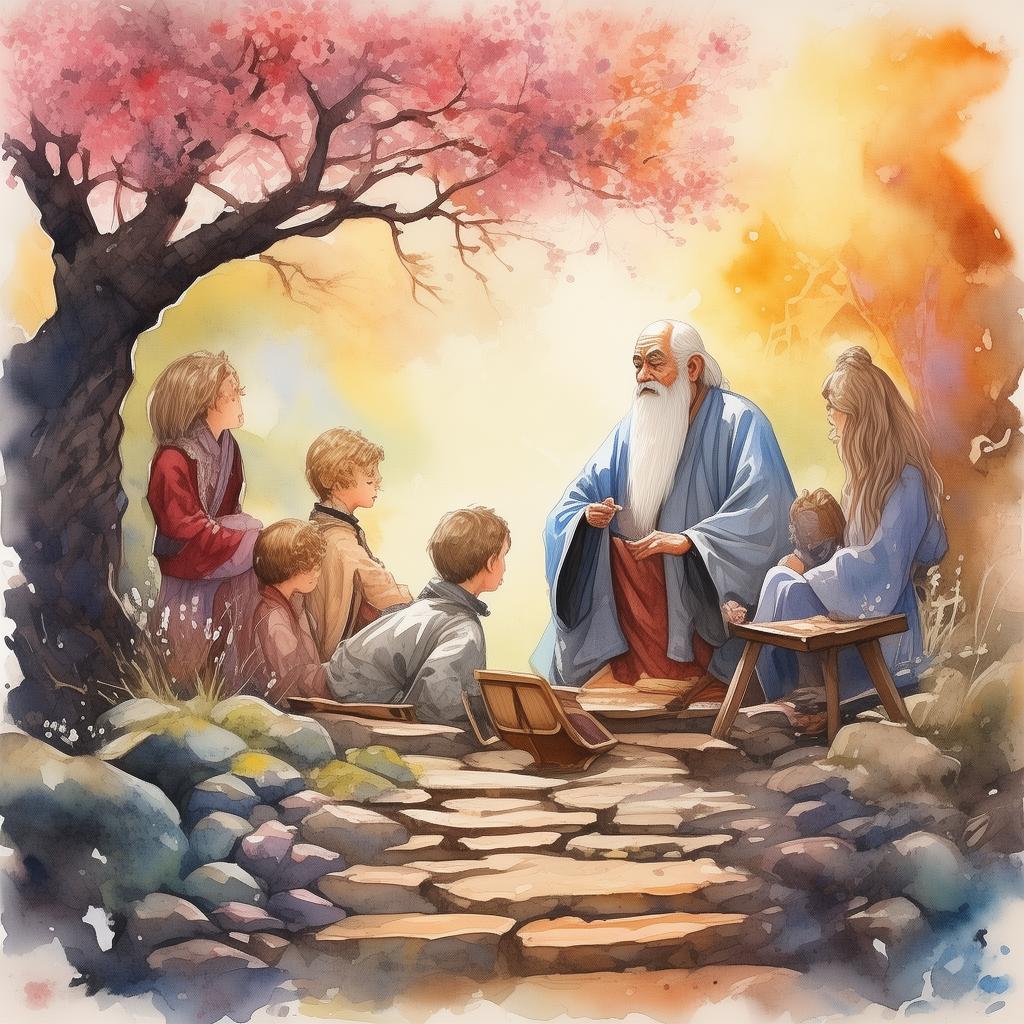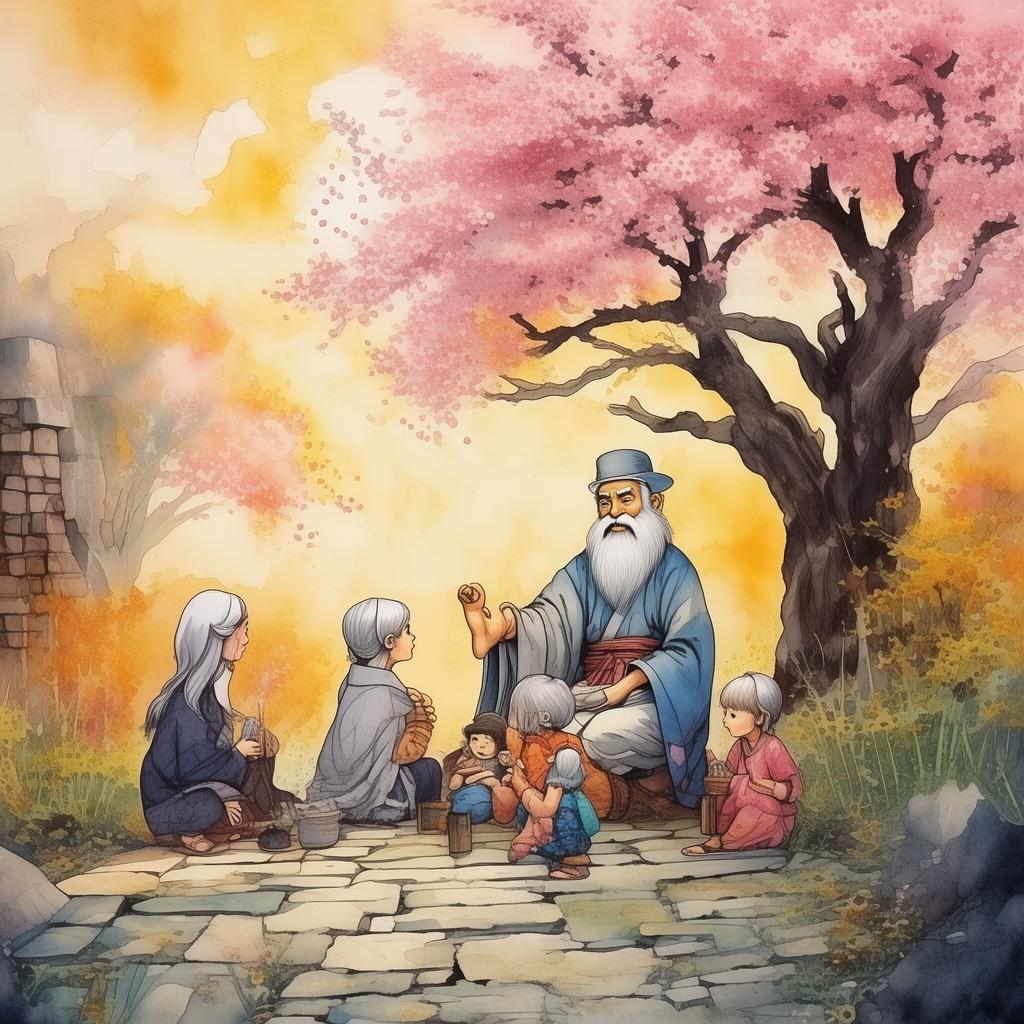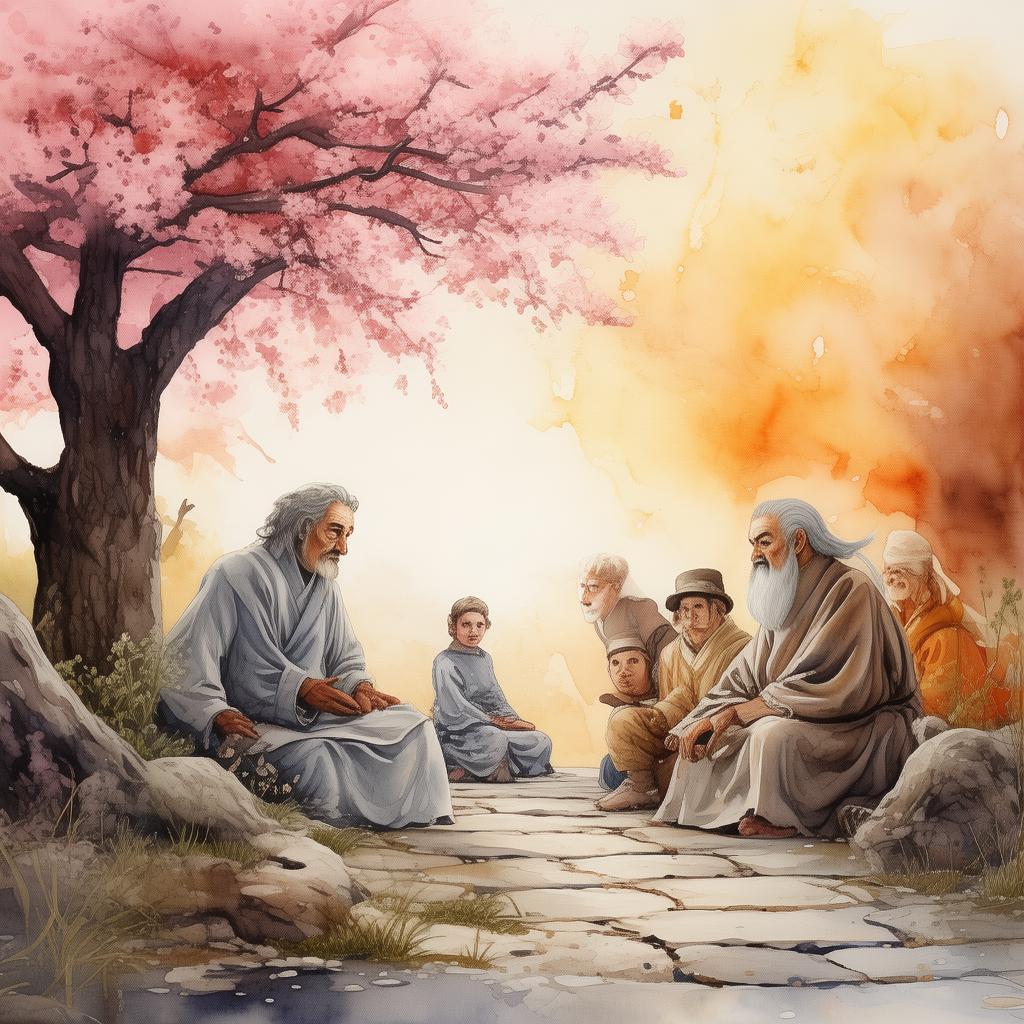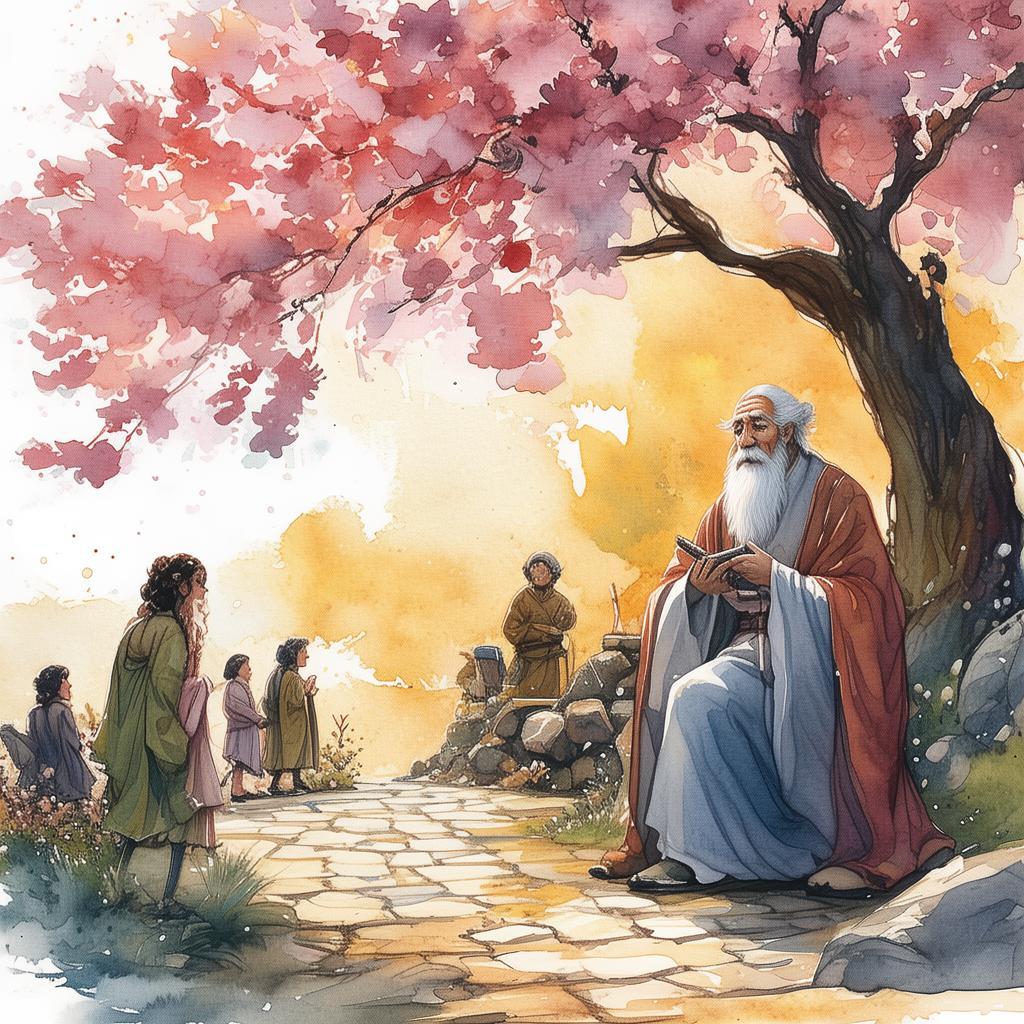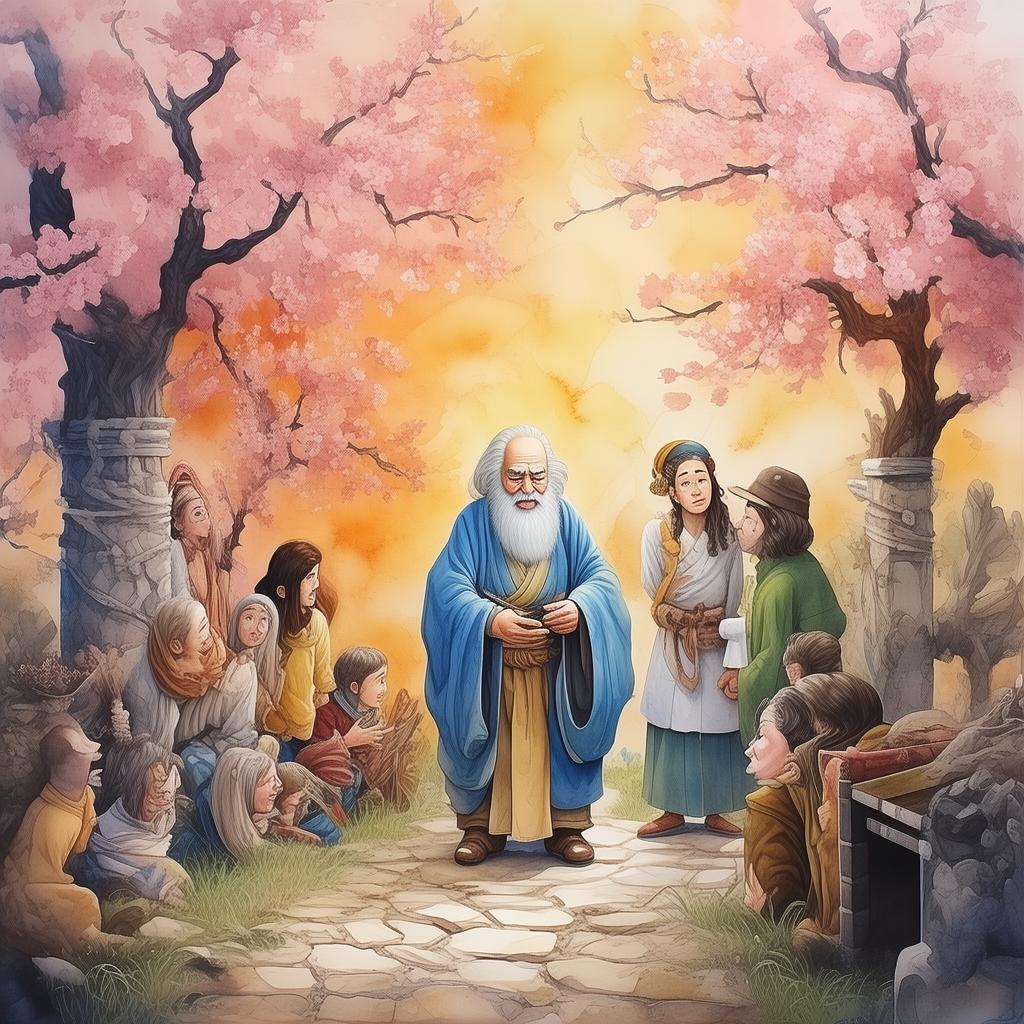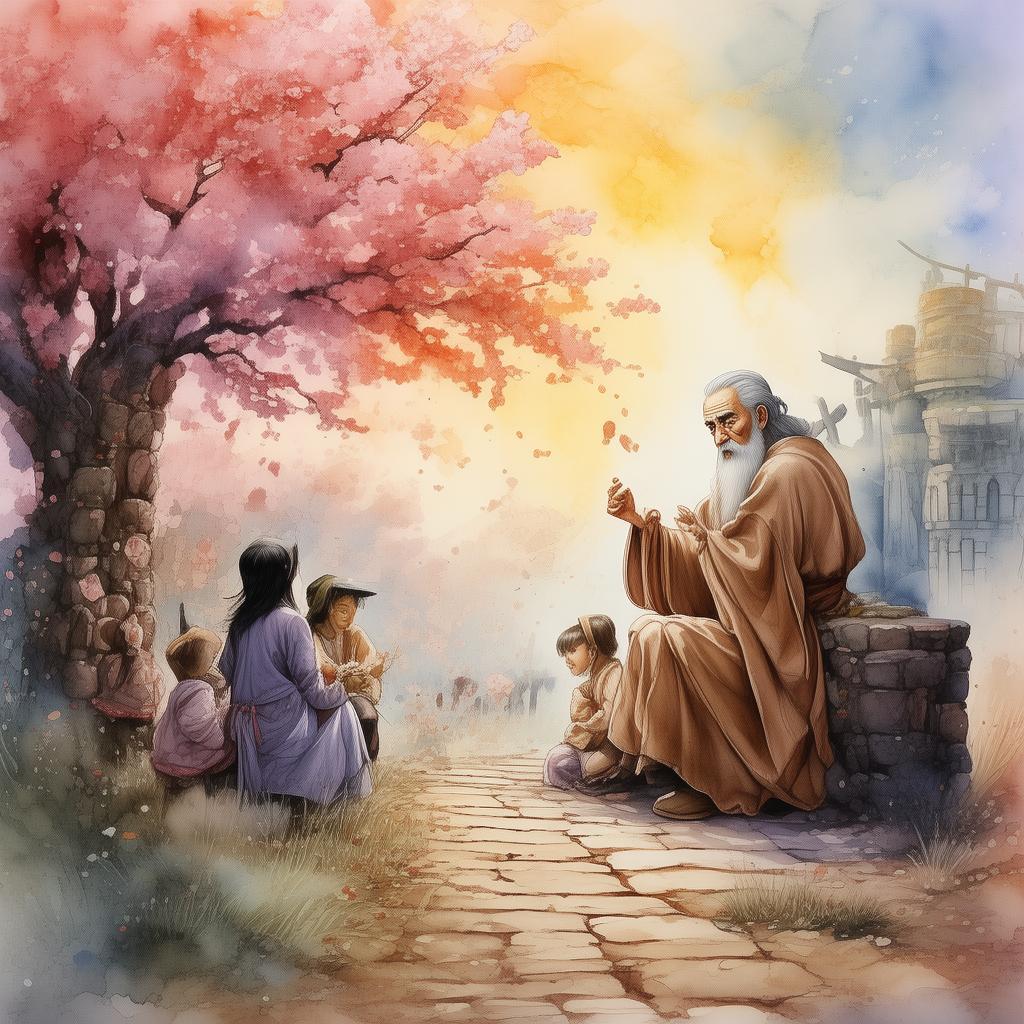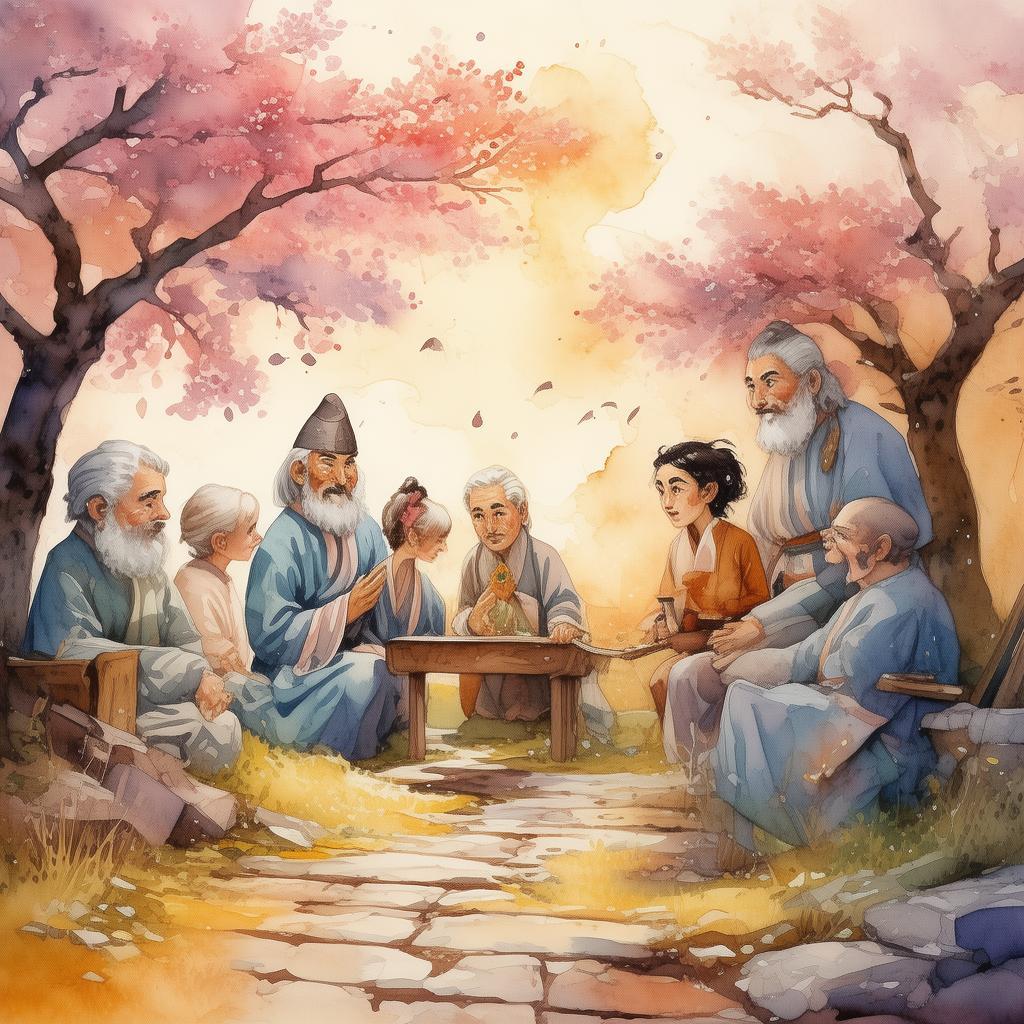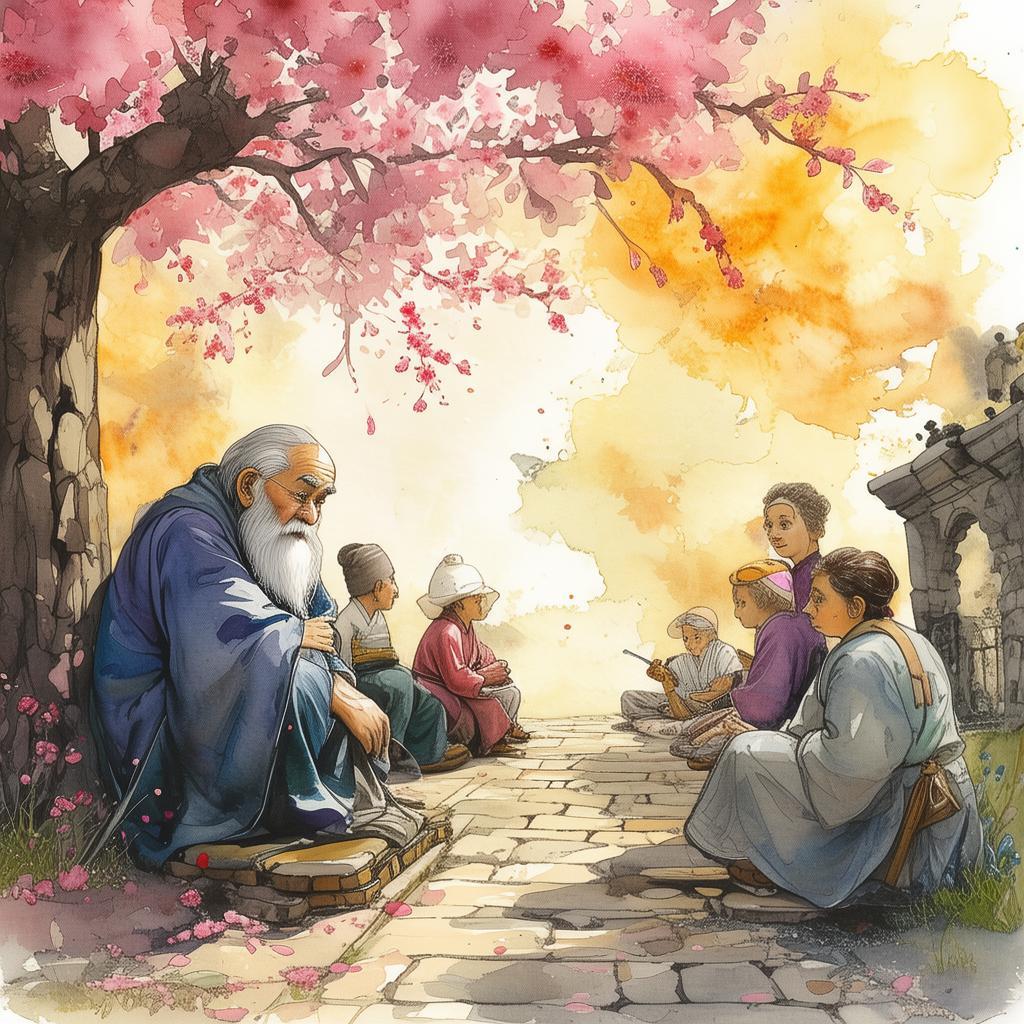The Quantum Leap of Young Genius: The Discovery of the Paradoxal Equation
In the heart of a bustling city, nestled between towering skyscrapers and bustling streets, was the modest laboratory of 17-year-old Wang Zhi, a prodigy in quantum physics. His journey into the unknown had always been driven by an insatiable curiosity, a desire to unravel the secrets of the universe.
It was a routine Thursday evening when Wang Zhi, hunched over his microscope, observed an anomaly that sent a shiver down his spine. The particles, usually predictable and bound to their trajectories, began to defy the very laws of physics. They danced, bending and twisting, as if caught in an invisible current.
Wang's mind raced. Could it be a mistake? He checked and rechecked his instruments, but the data was clear: he had discovered something extraordinary. The particles were behaving as if time itself had no meaning, as if it could flow backward as easily as it did forward.
Over the following days, Wang worked tirelessly, pouring over equations and theories, trying to find a way to explain the phenomenon. The more he delved into the world of quantum mechanics, the more he realized the implications of his discovery. It was as if he had discovered a gateway to another dimension, a reality where the rules of physics were entirely different.
He called his mentor, Professor Li, a respected physicist in his field. "I've found something, Prof. Li," Wang said, his voice trembling with excitement and fear. "It's like... the fabric of reality has a tear in it."
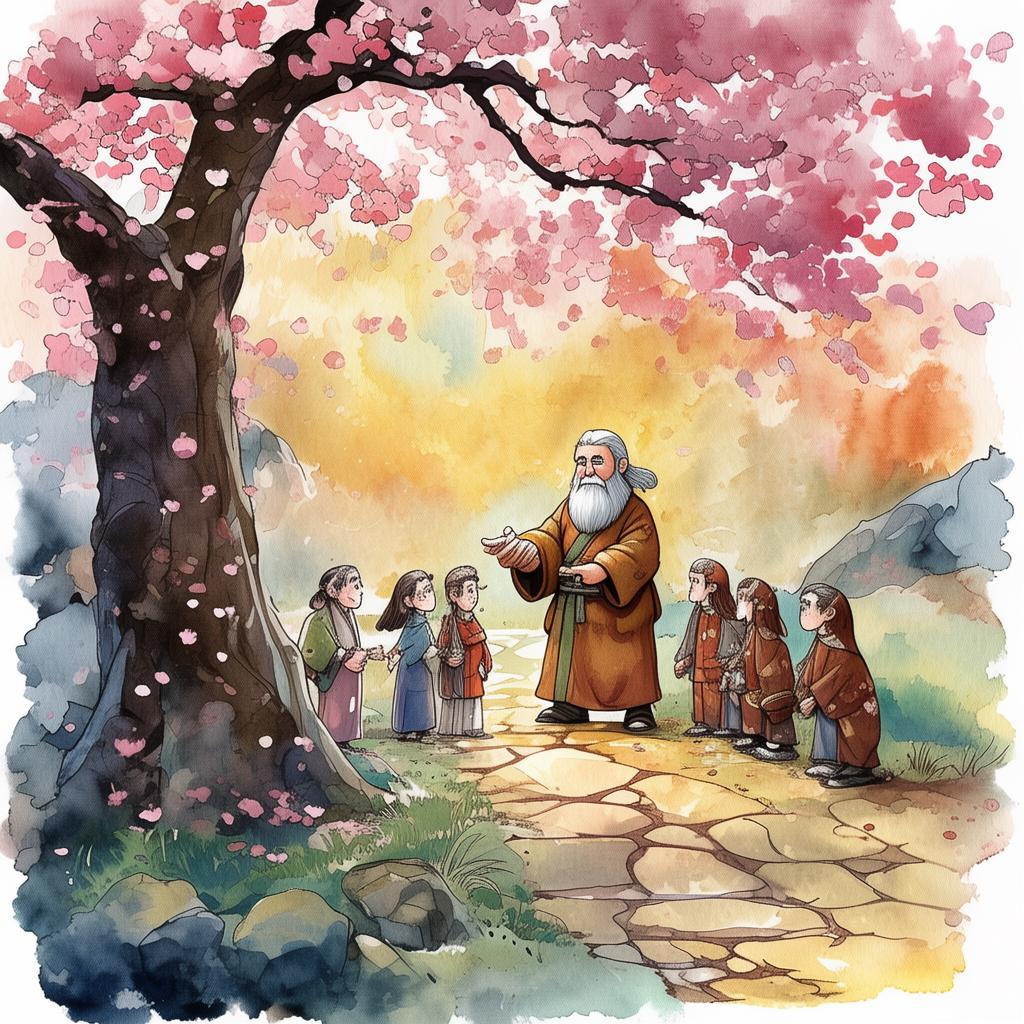
Professor Li arrived at the lab the next day, his eyes narrowing as he studied the data. "This is incredible," he said, his voice filled with awe. "If what you've discovered is true, it could change everything we know about the universe."
Wang, driven by his thirst for knowledge, began to experiment with the paradoxal equation. He isolated particles in a vacuum, manipulated their energies, and watched as time seemed to bend. Days turned into hours, hours into minutes, and minutes into seconds, all at once. It was as if he had the power to control the very essence of time itself.
But with this power came a dangerous challenge. The paradoxal equation began to reveal not only the secrets of the universe but also its fragility. In one experiment, a particle's energy level dropped to zero, causing a ripple effect that threatened to collapse the entire quantum framework. Wang had to make a decision: continue his experiments, risking the stability of the universe, or halt his work to preserve reality as he knew it.
The decision weighed heavily on Wang's shoulders. He knew that if he continued, the world as he knew it would end. But the allure of discovering the true nature of the universe was too strong to resist. "I have to find out," he muttered to himself.
With renewed determination, Wang pressed on, pushing the boundaries of his discovery further. He conducted more experiments, each more dangerous and unpredictable than the last. The more he delved into the paradox, the more he felt like he was treading on thin ice.
It was during one particularly intense experiment that Wang encountered his greatest challenge. The paradoxal equation began to unravel, and the very fabric of reality started to fray. He could feel it in his bones; if he didn't stop, the universe would cease to exist.
With a deep breath, Wang decided to reverse the process, using the paradoxal equation to restore order. He pushed a button, and the particles began to revert to their original positions. Time began to flow normally, but the damage was done. The universe had been pushed to the brink of existence, and Wang knew he had to face the consequences of his actions.
Professor Li, who had been monitoring the experiment, watched in horror as the universe teetered on the edge. "Wang, what have you done?" he exclaimed. "You could have destroyed everything!"
Wang, overwhelmed with guilt, fell to his knees. "I didn't know what I was doing," he confessed. "I just wanted to understand the universe."
Professor Li sighed and helped Wang to his feet. "You've done something remarkable, Wang. You've discovered something that could change everything. But now you must face the consequences of your actions."
The following weeks were a blur of calculations, experiments, and discussions with other physicists. Wang's discovery became the subject of international debate, and the world was forced to confront the true nature of reality.
In the end, Wang was hailed as a hero and a genius, his discovery a turning point in the field of quantum physics. But he also had to come to terms with the fact that his actions had pushed the universe to the brink of existence.
As he looked at the stars at night, Wang reflected on his journey. "I've learned that knowledge is a powerful tool, but with great power comes great responsibility," he thought. "The universe is a delicate thing, and we must be careful with it."
And so, with a newfound sense of purpose and a deeper understanding of the universe, Wang Zhi continued his work, determined to protect the fabric of reality from the dangers he had uncovered. The quantum leap of a young genius had not only changed the world of physics but had also taught him the importance of responsibility and the limits of human understanding.
✨ Original Statement ✨
All articles published on this website (including but not limited to text, images, videos, and other content) are original or authorized for reposting and are protected by relevant laws. Without the explicit written permission of this website, no individual or organization may copy, modify, repost, or use the content for commercial purposes.
If you need to quote or cooperate, please contact this site for authorization. We reserve the right to pursue legal responsibility for any unauthorized use.
Hereby declared.
